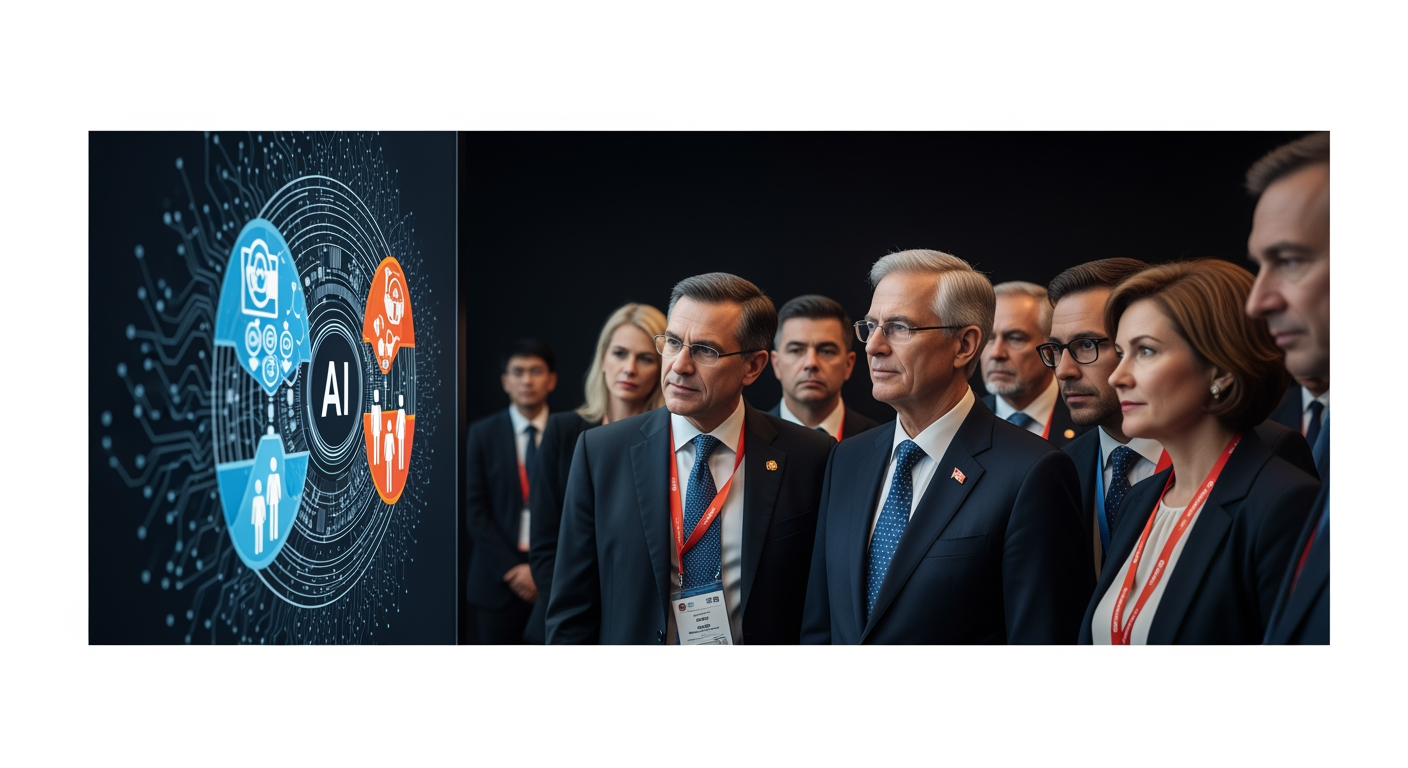Related Articles

Diplomatic Ripples: Canadian Prime Minister Apologizes to Trump Over Reagan Ad as Trade Tensions Escalate




Gyeongju, South Korea – Leaders of the Asia-Pacific Economic Cooperation (APEC) forum concluded their annual summit today, adopting pivotal declarations aimed at harnessing the transformative power of artificial intelligence (AI) and proactively addressing sweeping demographic changes across the region. The consensus reached in Gyeongju, encapsulated within the "Gyeongju Declaration" and two accompanying documents, signals a concerted effort by the 21-member economies to navigate complex global shifts and foster an inclusive, dynamic, and resilient Asia-Pacific.
The 2025 APEC Economic Leaders’ Meeting, hosted by South Korea under the theme "Preparing a Future-Ready Asia-Pacific," placed these critical issues at the forefront of regional dialogue., The discussions culminated in a unified vision for leveraging technological advancements and demographic resilience to drive sustainable economic growth and improve the welfare of over 3 billion people living within APEC member economies.
The adoption of a dedicated declaration on AI cooperation marks a significant step for APEC, reflecting the urgent need for a coordinated approach to artificial intelligence. Recognizing AI's immense potential for innovation, sustainable economic growth, and societal transformation, APEC leaders committed to fostering an AI-friendly socioeconomic environment.,,, This initiative is designed to differentiate itself from previous international discussions by focusing on a more practical perspective for preparing for and responding to the AI era.
South Korean President Lee Jae-myung, chairing the session, highlighted the strong AI capabilities within the APEC region, noting that five of the world's top ten countries in AI capability are APEC members, and all leading nations holding the highest number of AI-related patents are also part of the forum., The declaration underscores the importance of public-private cooperation to support corporate creativity and innovation, with a core principle being "AI for all" to ensure inclusive growth.,
This commitment builds upon previous efforts to advance digital transformation across the APEC region, including the implementation of the APEC Internet and Digital Economy Roadmap (AIDER)., The goal is to reduce digital divides, including the gender digital divide, and enable micro, small, and medium enterprises (MSMEs) to become more competitive and integrate into global value chains.,, By facilitating the flow of data while ensuring privacy and personal data protection, APEC aims to strengthen consumer and business trust in digital transactions and foster an open, fair, and inclusive digital ecosystem.
Complementing the AI initiatives, APEC leaders also adopted a significant declaration on responding to demographic changes, a challenge described by President Lee as "serious and far-reaching," impacting economy, labor market, education, and welfare systems., This marks a new area of substantive work for APEC, which has historically not explicitly addressed demographic challenges beyond some health-related initiatives.
The declaration proposes the establishment of a "Joint Framework on Responding to Demographic Change," a collaborative mechanism aimed at transforming the challenges posed by low birth rates and aging populations into opportunities.,, APEC economies are encouraged to collaborate through innovative ideas, from fostering inclusive growth that embraces future generations to developing AI-based strategies to address population challenges., This collaborative approach seeks to develop collective solutions that are too complex for individual economies to tackle alone.,
The implications of these demographic shifts present both hurdles and opportunities for various sectors, including software, robotics and automation, insurance, finance, and healthcare. The new framework is expected to spur innovation and investment in these areas, driven by the need to adapt to changing workforce dynamics and societal structures.
The twin declarations underscore a growing recognition among APEC leaders that the challenges of technological advancement and demographic shifts are deeply interconnected. Artificial intelligence, while posing its own set of ethical and societal considerations, is increasingly viewed as a crucial tool for mitigating the impacts of aging populations and shrinking workforces. From automating tasks to enhancing healthcare delivery for the elderly and improving educational outcomes for younger generations, AI could provide innovative solutions to demographic pressures.,,
This year's achievements in Gyeongju build on foundational discussions from the previous APEC Economic Leaders' Meeting in Lima, Peru, in November 2024., The "Machu Picchu Declaration" from Lima recognized the broad potential of AI for driving innovation and digital transformation.,, The 2024 summit also emphasized themes of sustainability, digital transformation, and resilient and inclusive growth, endorsing a "Lima Roadmap to Promote the Transition to the Formal and Global Economies (2025-2040).",,, These earlier discussions laid the groundwork for the more specific and actionable declarations adopted in Gyeongju, highlighting a continuous and evolving regional strategy.
The APEC forum, comprising economies that represent nearly half of global trade and more than 60 percent of the world's Gross Domestic Product, serves as a vital platform for dialogue and economic cooperation. The commitment to these declarations reflects a shared understanding among member economies that proactive, collaborative measures are essential to ensuring that the Asia-Pacific remains the world's most dynamic and interconnected region.
The Gyeongju declarations represent a significant step towards a future-ready Asia-Pacific. By focusing on AI cooperation and a joint framework for demographic change, APEC is demonstrating its commitment to tackling profound global challenges. The success of these declarations will ultimately depend on the consistent implementation of proposed initiatives and continued collaboration among member economies. The path forward involves leveraging the region's collective strength to ensure that the benefits of technological progress are widely shared and that demographic shifts are managed in a manner that promotes sustained prosperity and well-being for all.